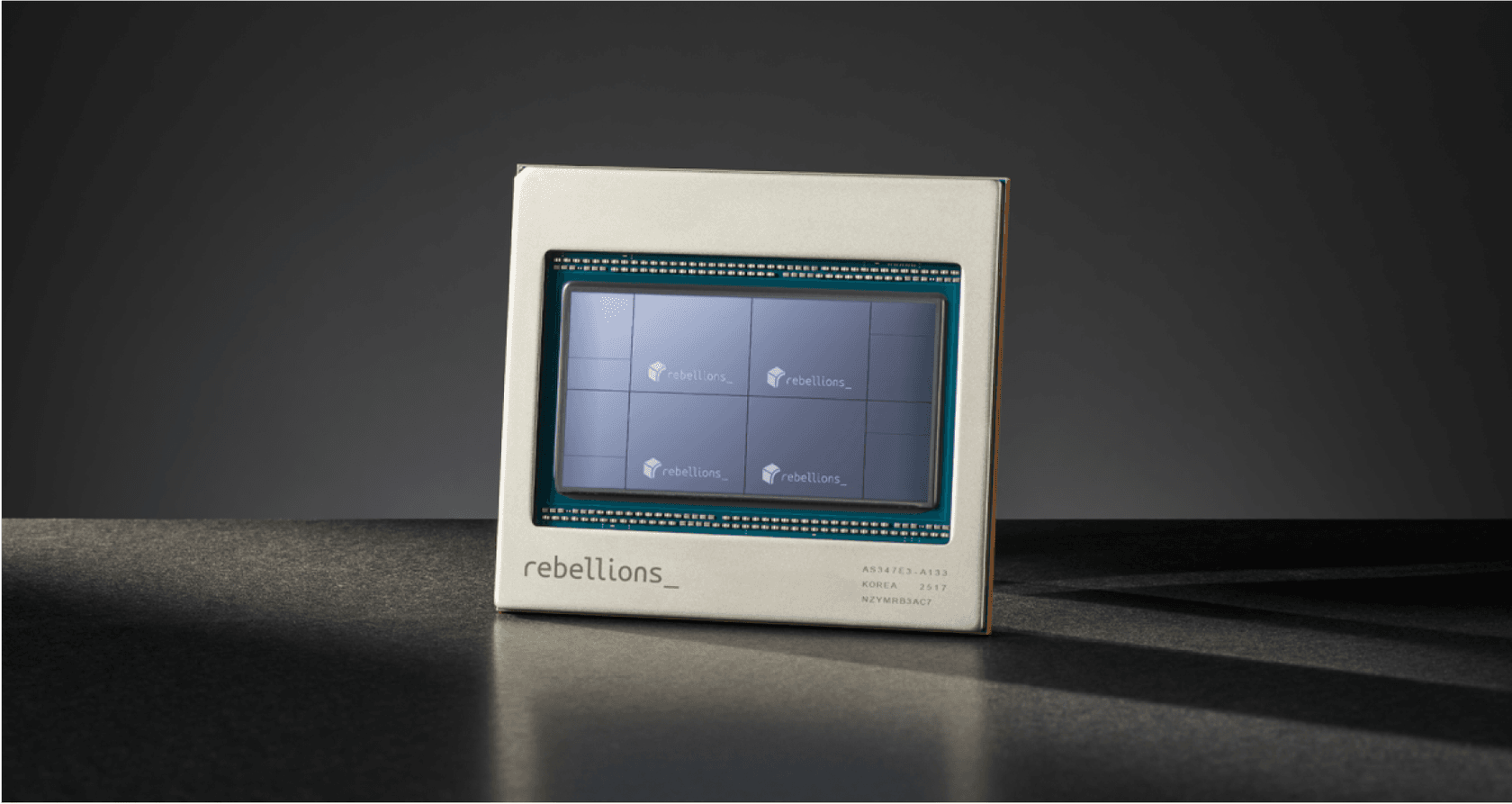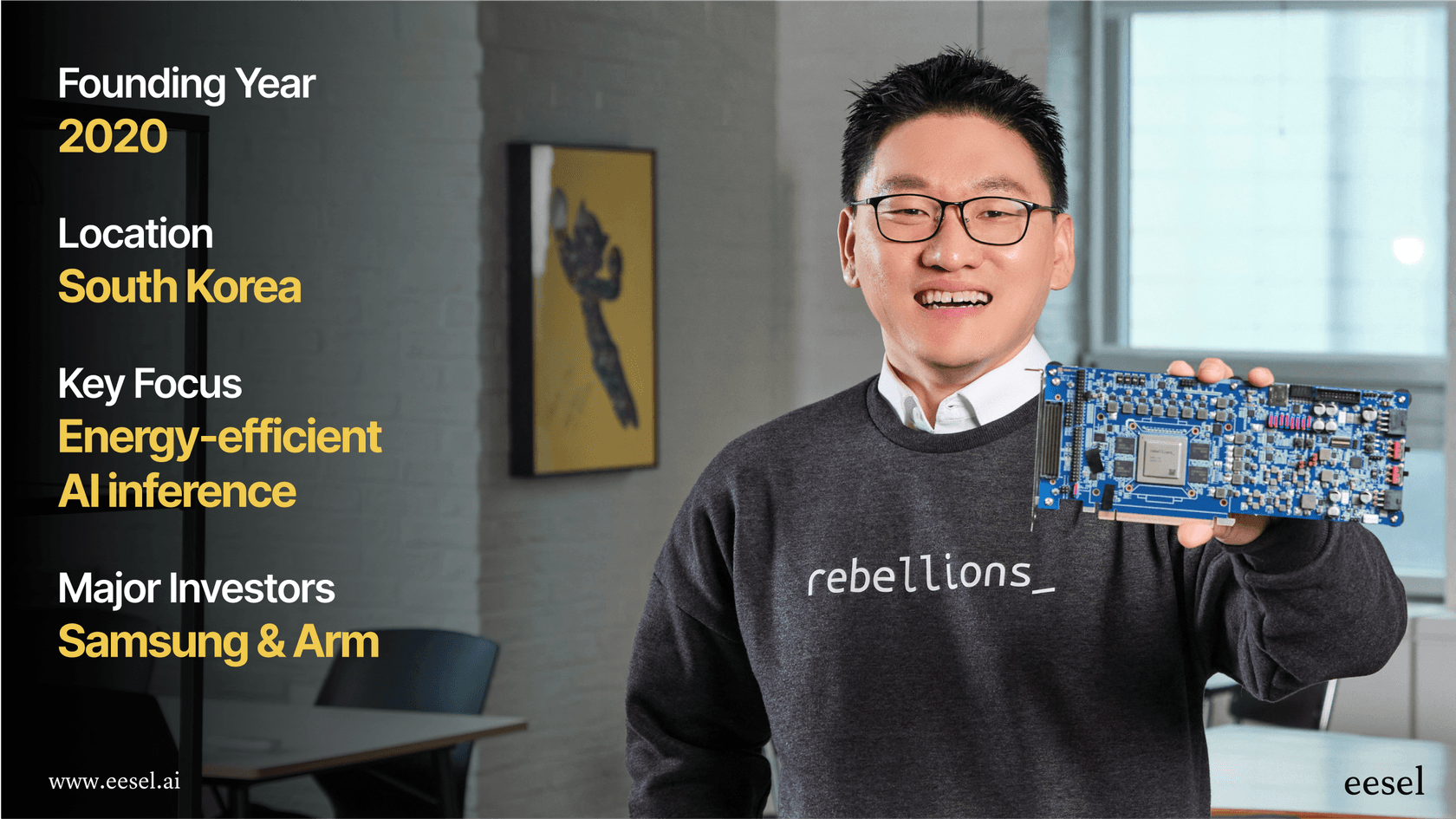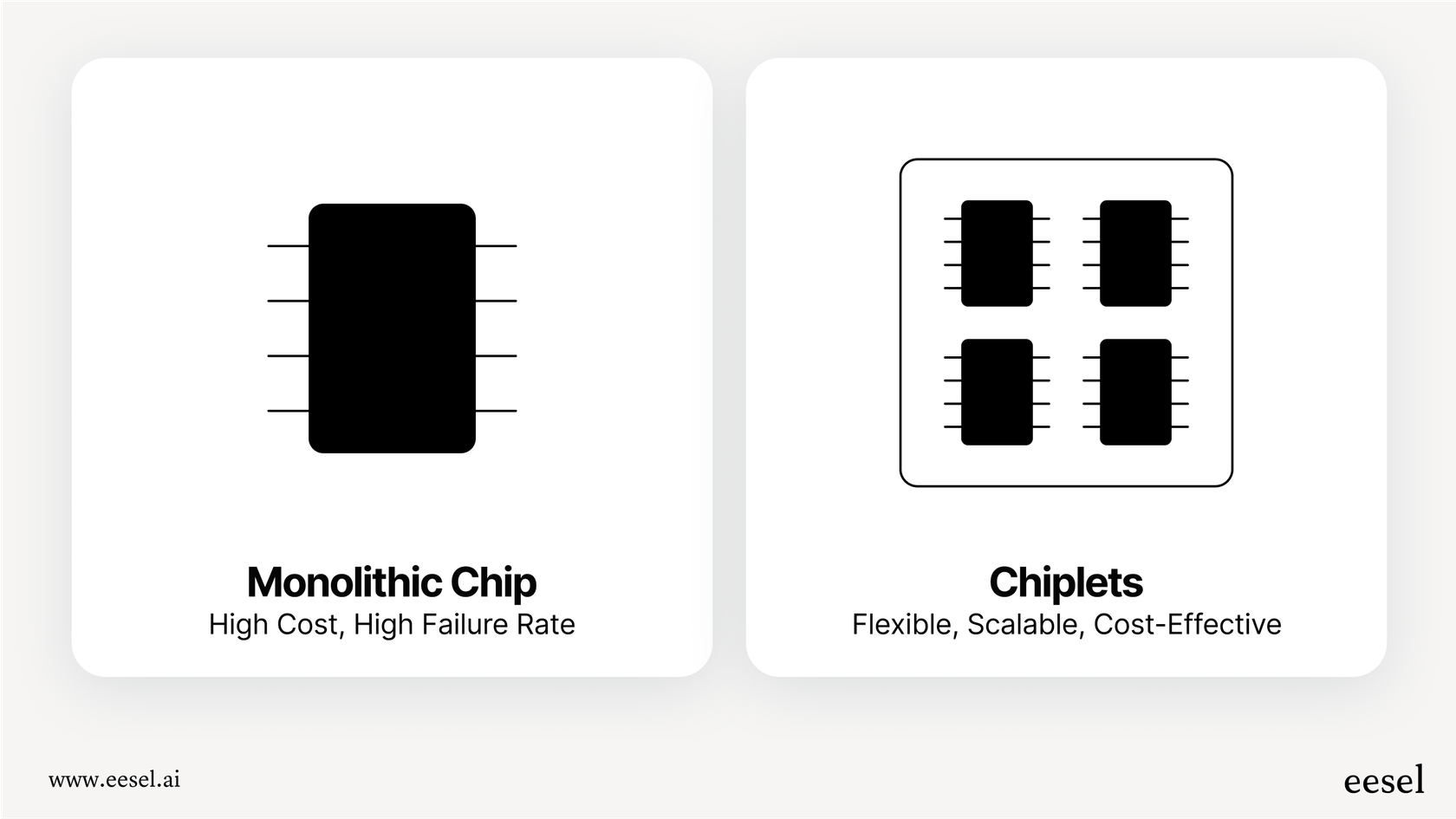
The AI hardware race is heating up. For a long time, a few big names have called the shots, but that's starting to change. A new contender from South Korea, Rebellions AI, is turning heads with its super-efficient AI chips, and they’re worth paying attention to.
If you've heard the buzz and are curious about what makes this company tick, you're in the right spot. We’re going to get into what Rebellions AI does, what makes their tech different, and what their arrival means for the future of AI.
Who is Rebellions AI?
Put simply, Rebellions AI is a semiconductor company that started in South Korea in 2020. Their goal is to build powerful AI chips that are really, really good at one specific thing: inference workloads, with a big emphasis on saving energy and money. Think of them as the specialists in a field of generalists.
They've made quite a splash in just a few years. After joining forces with another startup, Sapeon, Rebellions essentially became South Korea’s "national AI chip champion," as Forbes put it. This merger brought together a ton of talent and set them up to compete on a global stage.
And this isn't just a small startup hoping for a big break. Rebellions has some serious money behind it from major tech players. They recently raised a $250 million funding round that included strategic investments from Samsung and Arm. When some of the biggest names in the business are backing you, it’s a pretty strong vote of confidence.

Key components of the Rebellions AI strategy
Rebellions AI isn’t just trying to build a slightly better chip. They have a clear plan to find their niche in a market where a few giants have a massive head start. Their strategy rests on a few core ideas that really make them stand out.
Focus on energy-efficient AI inference
To really get what Rebellions is doing, you first need to understand the difference between AI training and AI inference. Training is the part where you teach a model by feeding it huge amounts of data. It’s incredibly power-hungry but mostly happens upfront. Inference is what happens every single time you use the model to get an answer, like asking a chatbot a question. Over an AI's lifetime, inference is where most of the operational costs and energy use come from.

Rebellions is zeroed in on making inference more efficient. This is a pretty big deal. The International Energy Agency noted that a single ChatGPT request can use almost ten times more electricity than a regular Google search. As AI gets woven into more of our daily tools, that energy consumption is going to skyrocket.
Their main product, the REBEL-Quad, is built to tackle this problem directly. According to their own benchmarks, it’s a strong alternative to competitors like Nvidia's H200, especially when you look at performance-per-watt.
| Metric | REBEL-Quad | Nvidia H200 |
|---|---|---|
| Throughput (TPS) | ~x0.9 | ~x1.0 |
| Efficiency (TPS/Watt) | ~x1.8 | ~x1.0 |
| Power Consumption (Watt) | ~x0.2 (~50% Less) | ~x1.0 |
So while its raw speed is a little lower, its efficiency is nearly double, and it uses way less power. For a massive data center running millions of these tasks every day, that makes a huge difference to the total cost of ownership.
Building a powerful ecosystem through strategic partnerships
Having a great chip design is one thing, but actually getting it made and into the hands of customers is a whole different challenge. This is where partnerships come in, and Rebellions has been smart about it.
Here are some of their key allies:
-
Samsung: As reported by CNBC, Samsung isn't just an investor; they’re the ones actually making the chips. Rebellions' chips are built using Samsung's top-of-the-line 4-nanometer process, the same advanced tech other big chipmakers use.
-
SK Hynix: They supply the crucial HBM3E (High-Bandwidth Memory), which is what allows modern AI models to process data at lightning speed.
-
Arm: A key investor that provides the base processor architecture that so many of the world's chips are built on. This relationship shows they are deeply connected to the core of the industry.
-
Penguin Solutions: Rebellions is working with Penguin to set up and manage global AI data center ecosystems. This helps their customers actually deploy the hardware at a large scale, closing the gap between having a chip and having a fully working system.

This network gives them the manufacturing power, supply chain reliability, and market access they need to go toe-to-toe with the established players.
Innovation with advanced chiplet architecture
Another clever part of Rebellions' tech strategy is its use of a chiplet architecture. Instead of designing one enormous, single chip (which is tough, expensive, and likely to have manufacturing errors), the chiplet method breaks the processor down into smaller, specialized "Lego-like" blocks. These little chiplets are then combined to create a bigger, more powerful, and customized processor.
Rebellions' REBEL-Quad is the first AI accelerator in the world to use the UCIe-Advanced standard, which is like a universal language for these chiplets to talk to each other. This approach has some real benefits:
-
Scalability: It's much easier to make stronger processors by just adding more chiplets instead of having to redesign a giant chip from the ground up.
-
Cost-Effectiveness: It’s cheaper to make. If one small chiplet has a defect, you just toss out that one little "Lego" instead of having to scrap the entire, expensive processor.
-
Flexibility: It lets engineers mix and match different kinds of chiplets, maybe some for computing, some for memory, and some for networking, to build processors that are perfectly tuned for specific jobs.

This clever design makes their hardware easier to scale and cheaper to make, which is another big plus in this competitive market.
Rebellions AI pricing
You won't find a pricing page for Rebellions AI chips. As a business-to-business (B2B) semiconductor company, they sell their products directly to huge data centers, cloud providers, and other large companies.
In this world, prices are figured out through big volume orders, custom contracts, and long-term deals. This model makes perfect sense for hardware, but it's a world away from the Software-as-a-Service (SaaS) model, where customers expect clear, predictable pricing so they can manage their budgets without any surprises.
The bigger picture: What efficient Rebellions AI hardware means for AI software
So, why should you care about a company that makes specialized computer chips? Because better hardware is what makes advanced AI software cheap enough and practical enough for everyday businesses to actually use.
More efficient and powerful hardware from companies like Rebellions AI brings down the cost of running large language models. This drop in energy use and boost in processing power is a huge step toward making AI available to everyone. It means software companies can offer more advanced features without having to pass unpredictable costs on to their customers.
Think about it this way: some AI support tools charge you per ticket solved. That can lead to a nasty surprise on your bill after a busy month. But when the hardware gets more efficient, it's easier for companies like eesel AI to offer simple, flat-rate plans that don't punish you for having a successful month.
When you have an efficient setup from the chip all the way up to the app, businesses can finally use powerful AI tools, like an AI Agent that learns from past support tickets or an AI Copilot that drafts replies for your team, without worrying about a runaway budget.
This interview with the CEO of Rebellions AI offers a deeper look into the future of efficient AI hardware.
Rebellions AI and the rebellion against the status quo
Rebellions AI is making a name for itself with its sharp focus on inference efficiency, a smart partnership-first strategy, and its innovative use of chiplet technology. The company isn't just trying to be another name in the AI chip race; they're helping the whole industry move toward more sustainable and scalable AI.
While these hardware improvements are essential for what's coming next, the real value for most businesses comes from the software that uses this power to solve actual problems. The more efficient the engine, the easier the journey is for everyone.
Take the next step with your AI strategy
While hardware companies are building the engines for the future, you need a practical, powerful software solution to move your business forward today.
eesel AI gives you a radically simple platform to automate your customer support. You can get started in a few minutes, not months, with a fully controllable AI that learns from your existing knowledge bases and helpdesk tickets.
Start your free trial and see just how easy it is to deploy an AI agent that works for you.
Frequently asked questions
Rebellions AI is a South Korean semiconductor company founded in 2020. They specialize in developing highly energy-efficient AI chips primarily for inference workloads, distinguishing themselves as specialists in the field.
While competitors often focus on raw processing power for both AI training and inference, Rebellions AI specializes in optimizing chips for inference efficiency. Their REBEL-Quad chip offers significantly higher performance-per-watt compared to some competitors, consuming less power for similar tasks.
Rebellions AI aims to address the rapidly increasing energy consumption and operational costs associated with AI inference. By developing more efficient chips, they help reduce the electricity needed for every AI query, making AI more sustainable and cost-effective for large-scale deployment.
Rebellions AI has formed key strategic partnerships with industry giants such as Samsung for manufacturing, SK Hynix for memory, and Arm for processor architecture. They also collaborate with Penguin Solutions to advance global AI data center ecosystems.
Rebellions AI utilizes an advanced chiplet architecture, breaking down processors into smaller, specialized blocks. This approach allows for greater scalability, cost-effectiveness due to easier defect management, and increased flexibility to customize processors for specific AI tasks.
As a B2B semiconductor company, Rebellions AI does not offer public pricing. Their chips are sold directly to large data centers, cloud providers, and enterprises through custom contracts, volume orders, and long-term deals, rather than a fixed Software-as-a-Service model.
Share this post

Article by
Kenneth Pangan
Writer and marketer for over ten years, Kenneth Pangan splits his time between history, politics, and art with plenty of interruptions from his dogs demanding attention.







